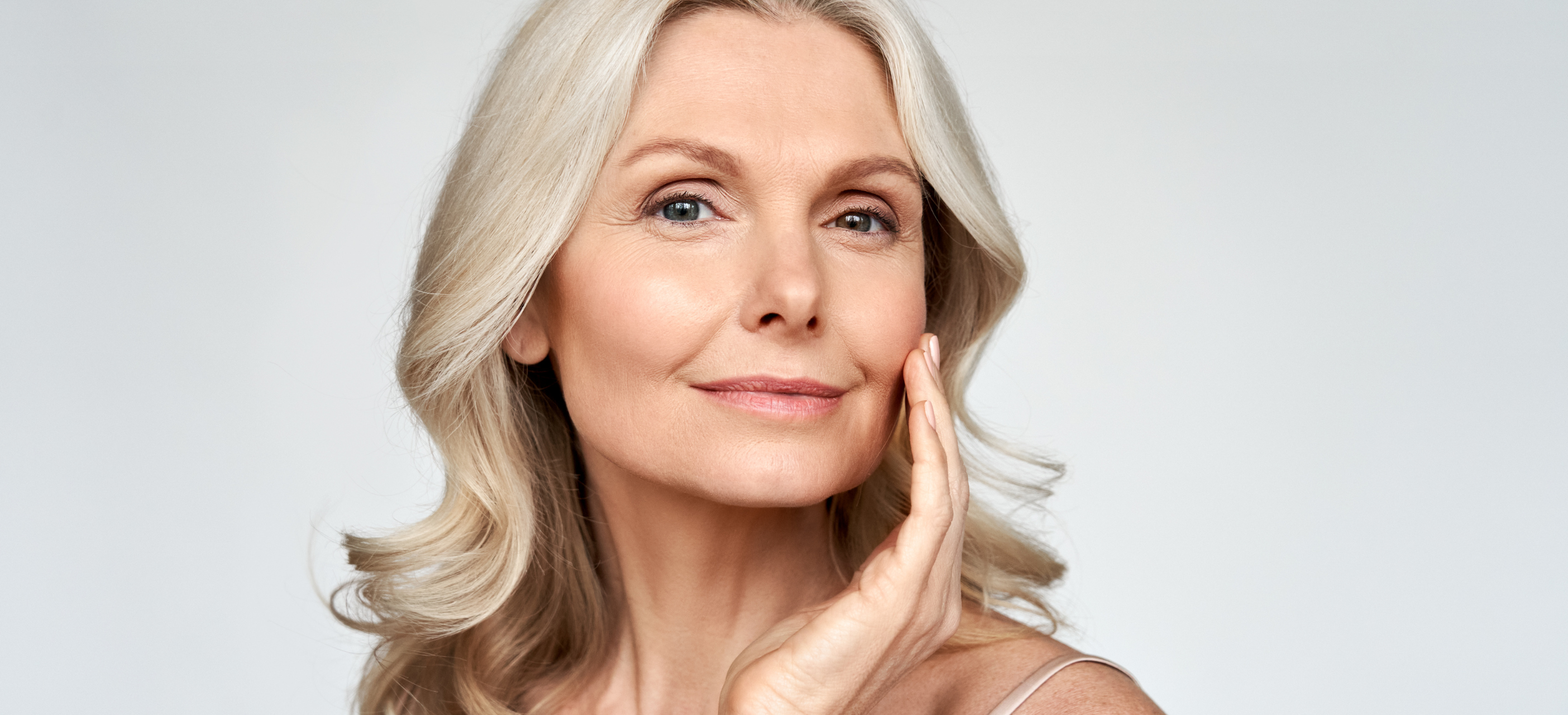Menopause is a natural phase in a woman’s life that marks the end of her reproductive years. While it brings several changes to the body, one area that often goes overlooked is its impact on the skin. Menopause can cause significant changes in our skin’s health and appearance, including dryness, wrinkles, and loss of elasticity. In this blog, we will explore the effects of menopause on the skin and discuss ways to maintain healthy and vibrant skin during this transition.
Understanding Menopause and its Impact
Menopause occurs when a woman’s ovaries stop producing eggs, leading to a decline in estrogen and progesterone hormones. These hormonal changes can affect various bodily functions, including the skin. Estrogen plays a vital role in maintaining skin health by promoting collagen production, keeping the skin moisturized, and enhancing its elasticity. As estrogen levels decline during menopause, the skin undergoes notable changes.
Effects of Menopause on the Skin
1. Dryness and Thinning: One of the most common effects of menopause on the skin is increased dryness. The skin may feel rough, flaky, and more prone to irritation. This occurs due to a decrease in oil production, which leads to decreased moisture retention. Additionally, the skin becomes thinner, making it more susceptible to damage and fine lines.
2. Wrinkles and Sagging: Estrogen helps maintain collagen and elastin production, which are responsible for the skin’s firmness and elasticity. With the decline in estrogen levels, collagen and elastin production decreases, leading to the formation of wrinkles, fine lines, and loss of skin elasticity. Sagging skin and a loss of facial volume are also commonly observed.
3. Increased Sensitivity: Menopause can make the skin more sensitive and prone to redness and irritation. This heightened sensitivity is a result of reduced estrogen, which acts as a protective barrier for the skin.
4. Hyperpigmentation: Hormonal changes during menopause can also trigger an increase in melanin production, leading to hyperpigmentation or “age spots.” These dark patches are commonly seen on the face, hands, and chest.

Maintaining Healthy Skin during Menopause
1. Moisturise Regularly: Hydrate your skin with a rich, nourishing moisturiser that replenishes lost moisture and helps combat dryness. Look for products containing hyaluronic acid, ceramides, and essential oils to boost hydration levels. Our favourite is Obagi Hydrate.
2. Sun Protection: Protect your skin from harmful UV rays by applying broad-spectrum sunscreen daily. Sunscreen helps prevent further damage and minimises the risk of hyperpigmentation.
3. Anti-Aging Skincare: Incorporate products with active ingredients such as retinoids, peptides, and antioxidants into your skincare routine. These ingredients can help stimulate collagen production, reduce wrinkles, and improve skin texture.
4. Gentle Cleansing: Use a gentle, non-drying cleanser to remove impurities without stripping the skin further. Harsh cleansers can exacerbate dryness and irritation.
5. Healthy Lifestyle Habits: Adopting a healthy lifestyle can have a positive impact on your skin during menopause. Eating a balanced diet rich in antioxidants and omega-3 fatty acids, and exercising regularly can help maintain skin health.
Menopause can bring about several changes in our skin due to hormonal fluctuations. Understanding these effects and taking proactive steps to care for our skin can help maintain its health and vitality during this transition period. By adopting a skincare routine that focuses on hydration, sun protection, and anti-ageing measures, we can nurture our skin and promote a healthy and radiant complexion as we navigate through menopause. Embrace this transformative phase of life while prioritising self-care and embracing healthy skin during this new chapter.
Contact us today to discuss how we can help improve your menopausal skin.






